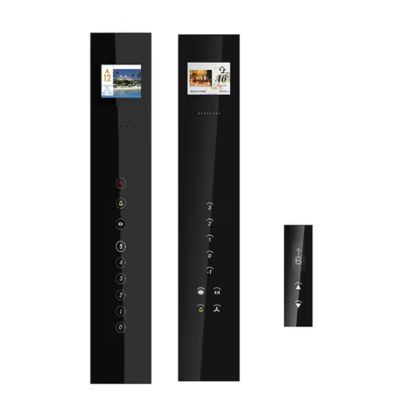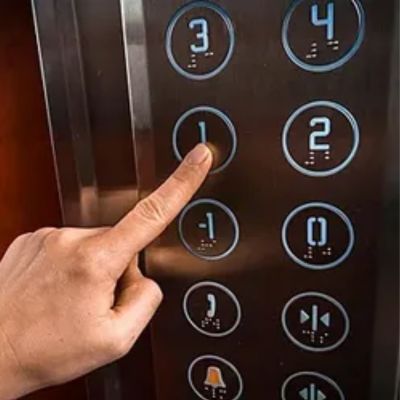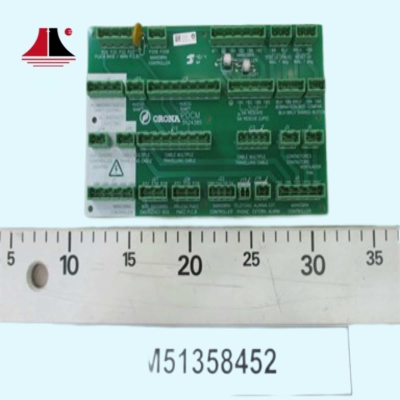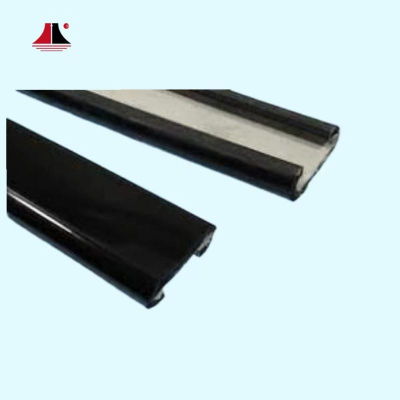How to Choose Your Home Elevator Panel: Touch Screen vs. Buttons?
A home elevator is a modern addition that significantly boosts convenience and accessibility in your villa. One of the key components that shape your elevator’s functionality and user experience is the control panel. Whether it’s the Car Operating Panel (COP) inside the elevator or the Landing Operating Panel (LOP) on each floor, the choice between a touch screen and physical buttons can have a big impact. In this article, we explore the differences between touch screen panels and physical button panels, helping you understand which option best suits your needs. We also discuss how advanced features from FUJITA set our home elevators apart in terms of reliability, ease of use, and integration with smart home systems.
Understanding Elevator Control Panels
Elevator control panels are the interface through which passengers interact with the elevator system. There are two main types of panels found in modern home elevators:
Car Operating Panel (COP): This panel is located inside the elevator car and allows users to select floors, call emergency services, and sometimes control other features like lighting or music.
Landing Operating Panel (LOP): Found on each floor, the LOP enables residents to call the elevator to their level and sometimes displays useful information such as the current floor or status alerts.
These panels not only facilitate the everyday operation of the elevator but also play a crucial role in ensuring safety and enhancing the overall user experience.
Touch Screen Panels vs. Physical Button Panels
The debate between touch screen panels and physical button panels is common among homeowners considering a home elevator installation. Let’s break down the features and advantages of each:
Touch Screen Panels
Touch screen panels offer a modern, sleek interface that many homeowners find appealing. Key features include:
Modern and Intuitive Interface: Touch screens provide dynamic, user-friendly menus that can be customized to display floor maps, emergency instructions, or even integrate with smart home systems.
Customizability: With touch screens, the display can be tailored to match your villa’s interior design, offering a clean and sophisticated look.
Interactive Experience: They allow for advanced functionalities, such as virtual guides, real-time diagnostics, and the possibility of integrating with other smart devices in your home.
Considerations for Touch Screen Panels:
Higher Initial Cost: The advanced technology may come with a higher upfront price.
Software Dependency: They rely on software that may require updates and troubleshooting if technical issues arise.
Sensitivity Concerns: In some cases, touch screens may be overly sensitive or less responsive if not properly calibrated.
Physical Button Panels
Physical button panels represent the traditional approach to elevator control. Their features include:
Tactile Feedback: The physical buttons provide immediate, reliable tactile feedback, which many users appreciate for its simplicity and reliability.
Proven Reliability: With fewer electronic components, physical buttons are less prone to software glitches and often require less technical support.
Familiarity: Most users are accustomed to physical buttons, which can be especially beneficial for those who prefer a straightforward and intuitive interface.
Considerations for Physical Button Panels:
Limited Customization: Physical buttons offer less flexibility in terms of design and functionality compared to touch screens.
Appearance: They may not provide the modern, sleek look that some homeowners desire.
Potential Wear and Tear: Over time, physical buttons may show signs of wear with frequent use.
User Experience and Accessibility Considerations
The choice between a touch screen and physical buttons also comes down to how each option enhances the user experience and meets accessibility needs:
Ease of Use: Touch screens offer an interactive and engaging experience, but physical buttons are often more straightforward, especially for individuals who might be less comfortable with technology.
Accessibility: For older adults or people with visual impairments, physical buttons with tactile feedback can be easier to use. Conversely, touch screens can be designed with larger icons and voice control features for enhanced accessibility.
Aesthetic Integration: The look and feel of the control panel should complement your villa’s interior. Touch screens can be designed with customizable themes that match your décor, while physical buttons lend a timeless, classic appeal.
Safety and Reliability
Safety is a paramount concern for any home elevator. Both types of control panels are designed to ensure that safety features are always accessible:
Emergency Functions: Whether using a touch screen or physical buttons, both panels include emergency functions such as an alarm button or an option to contact help.
Reliability in Low-Light or Power Outage Conditions: Physical buttons often perform better in low-light or emergency situations where a touch screen might be less responsive.
Redundancy: Many modern systems include backup safety measures, ensuring that if one component fails, the other functions can still operate effectively.
At FUJITA, our home elevators are engineered with robust safety systems. We ensure that every control panel—whether touch screen or physical—is integrated with emergency protocols that meet international safety standards.
Integration with Smart Home and Future-Proofing
As technology evolves, so do the features of home elevators. Touch screen panels have an edge in terms of smart home integration:
Smart Home Compatibility: Touch screen panels can be easily integrated with other smart devices, allowing you to control your elevator via a mobile app or voice command. This integration enhances convenience and offers future-proofing, as software updates can bring new features over time.
Data and Analytics: Advanced touch screen panels can provide diagnostic information, usage statistics, and even predictive maintenance alerts, ensuring that your elevator remains in optimal condition.
Upgradability: With software-based systems, it’s often easier to implement upgrades and new functionalities without having to replace the hardware entirely.
That said, physical button panels are not without merit. Their simplicity and durability make them a reliable choice, especially for homeowners who prefer a proven, time-tested solution.
Cost Considerations and Maintenance
Cost is always a factor when choosing components for your villa elevator:
Initial Investment: Touch screen panels generally come with a higher initial cost due to the advanced technology and customizability they offer. Physical button panels, being simpler, tend to be more budget-friendly.
Maintenance Requirements: Physical buttons have fewer components that can fail and usually require less frequent maintenance. In contrast, touch screen panels might need occasional software updates and calibration.
Long-Term Value: Consider the long-term benefits of smart integration and advanced features. While the initial investment in a touch screen panel may be higher, its ability to evolve with technological advancements could provide greater value over time.
Conclusion
Choosing the right elevator control panel for your home elevator ultimately depends on your priorities—whether you value the modern interactivity and smart integration of a touch screen, or the simplicity, reliability, and timeless appeal of physical buttons. Each option has distinct advantages in terms of user experience, safety, accessibility, and maintenance.
At FUJITA, we offer a range of home elevator control panel solutions designed to meet diverse needs. Our products incorporate both touch screen and physical button options, ensuring that you can choose the system that best fits your villa’s design and your personal preferences. With robust safety features, superior performance, and seamless integration with smart home technology, our elevators are built to provide a smooth and reliable experience.
We invite you to learn more about our innovative home elevator solutions. Contact us today to discuss your requirements and explore how FUJITA advanced control panels can enhance the functionality, safety, and aesthetic appeal of your villa elevator.





